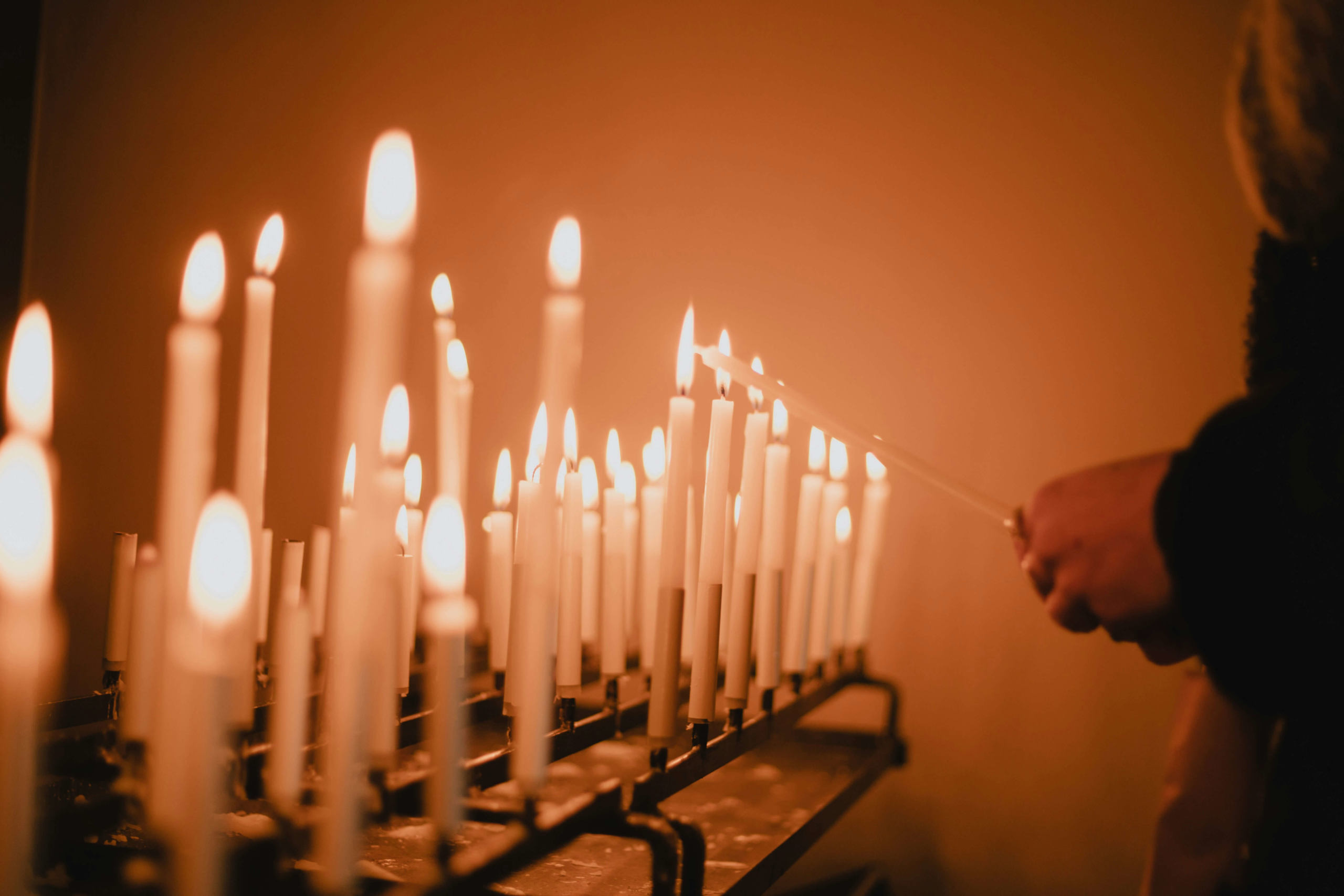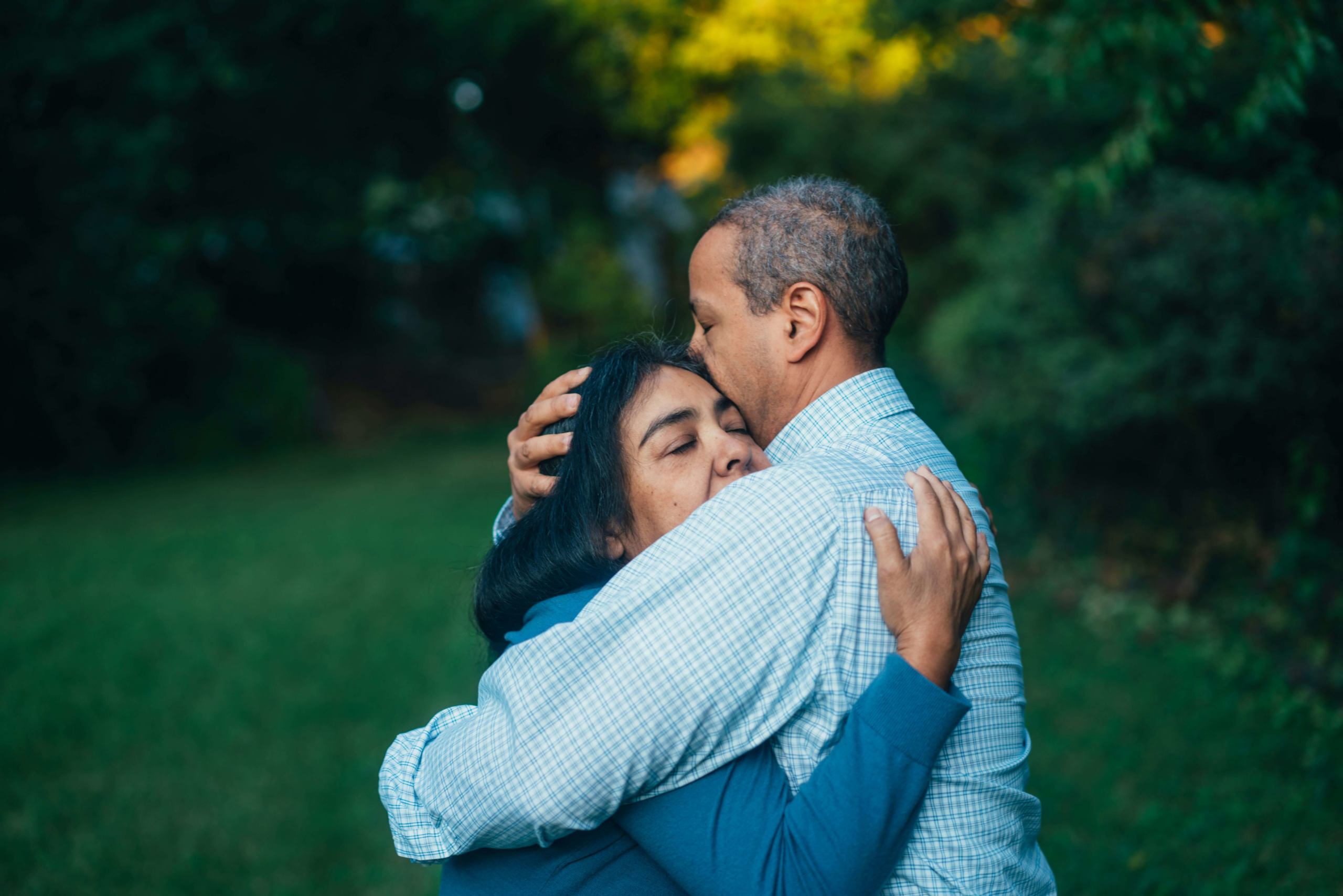Spiritual or religious trauma is a type of relational trauma. It stems from living in or being exposed to an environment with rigid religious or spiritual beliefs. This can range from living in an extreme religious cult, an abusive religious setting, a fundamental group that was not aligned with your own core beliefs, or any other controlling and painful religious experience that left you feeling isolated, afraid, and lost. In this blog post, we will take a look at relational trauma. Then, we will take a deeper look at spiritual or religious trauma and how it might impact you. We will also discuss how you can work through your trauma through trauma therapy and forge ahead with a value and belief system more congruent with who you are.
Relational trauma refers to traumatic experiences that occur within the context of relationships with others, individuals, groups, or in the workplace. This can include childhood abuse or neglect, intimate partner violence, war, or any other form of emotional, physical, or sexual abuse. Relational trauma can have a deep impact on a person’s sense of self, their ability to trust others, and their capacity for healthy relationships. These experiences can leave lasting impacts on your emotional and psychological well-being causing considerable psychological distress.
Recognizing the Impact of Relational Trauma
Have you ever felt persistently undermined, uncared for, or dismissed in your relationships? Such experiences could be manifestations of relational trauma. It’s not just about physical wounds – the psychological and emotional impacts are often profound, as they disrupt the very fabric of your connection to yourself and others.
The effects of relational trauma subtly alter your sense of self, eroding your ability to trust others and impeding your capacity to cultivate healthy relationships. But, remember, there’s always hope for healing. Is it easy to trust again after such experiences? Absolutely not. In a safe space of unconditional acceptance you can gradually rebuild the essential trust required to heal the wounds of relational trauma. We cannot take away your trauma, but we can work together to help you overcome the impact of trauma. You deserve to experience fulfilling and healthy relationships.
Have you ever wondered how these Traumas Affect your Life?
Relational trauma often leaves invisible scars, impacting every facet of your life. It can influence your emotional health, leading to anxiety, depression, post-traumatic stress disorder (PTSD), and in many cases a felt loss of self. Many describe feeling fragmented and lost. Many feel like something is wrong with the core of who they are. This can be incredibly debilitating, robbing you of joy and turning everyday tasks into monumental challenges. Do you find yourself in a constant state of overwhelm, sadness, fear, or guilt? These emotions could be the remnants of relational trauma.
Moreover, relational trauma can harm your interpersonal relationships. Unresolved trauma may instill a constant fear of rejection or abandonment, making you overly cautious or even avoidant of close relationships. Can you recall instances when you pushed people away or built impenetrable walls around yourself? That’s your mind’s way of protecting you from experiencing the same pain again. And it’s not just about personal relationships – trauma can affect your performance at work, your social interactions, and your overall life satisfaction.
Remember, recognizing and acknowledging the impacts of relational trauma is the first step towards healing. It’s perfectly okay to seek help and take steps towards recovery. After all, you deserve to live a life free of past traumas, one filled with meaningful connections, joy, and personal growth.
Are you experiencing any of these symptoms?
- Intrusive Thoughts
- Emotional Dysregulation
- Avoidance of Triggers
- Hypervigilance
- Disrupted Relationships
- Self-Destructive Behavior
- Dissociation
- Sleep Disturbances
The impact of trauma shows up in many ways. The above are a cluster of symptoms often associated with repeated relational trauma. If you are experiencing these symptoms, be curious and honest about why this may happening. Share your concerns with a safe loved one or reach out to a therapist to become better informed about trauma. Healing is possible.
What about the Impact of Spiritual or Religious Trauma?
Spiritual trauma or religious trauma often results in confusion about your core beliefs. It can leave you grappling with who you are separate and apart from the rigid beliefs you may have encountered. When religious or spiritual systems become a source of pain and confusion, it can feel as if you have lost your center. Are you experiencing a crisis of faith, perhaps questioning the beliefs you held dear, or even feeling betrayed by the very institution or people you trusted? This is a common manifestation of this type of trauma, and it can leave you feeling lost, disillusioned, and questioning your place in the world.
Spiritual trauma can lead to a distorted perception of yourself. Many grow up with beliefs that just don’t fit with who they are. Perhaps the environment was too rigid and narrow or even abusive. Regardless, self-narratives associated with harsh, authoritarian, or controlling environments often instill feelings of guilt, shame, and unworthiness. Do you find yourself grappling with a sense of self-loathing or a belief that you are fundamentally flawed? For some, the word religion can be triggering. This can be a direct consequence of spiritual or religious trauma.
These feelings are not an accurate reflection of who you are. You may have an inner knowing about this but are not sure how to begin to explore your own thoughts around spirituality or religion. Online trauma therapy can help you discover your beliefs and restore your sense of self, guiding you toward a future where you are in alignment with your belief system.
Is Spiritual or Religious Trauma Affecting Your Personal Growth and Relationships?
- Do you often find yourself suppressing your feelings or emotions in order to avoid conflict in your relationships, especially around topics of religion, spirituality, or purpose?
- Have you ever questioned the morality or ethics of certain teachings within your spiritual or religious tradition? Perhaps you were punished for questioning?
- Are there recurring patterns of dissatisfaction or misunderstandings in your relationships that you’re unable to identify or address?
- Are your personal growth efforts often hindered? Maybe those in authority fear personal growth?
- Do you feel conflicted about your own beliefs? Is this impacting your ability to develop healthy, fulfilling relationships?
The Importance of Healing from Spiritual + Religious Trauma
If the symptoms or questions above resonate and you’ve had negative experiences around religion, faith, or spirituality then online trauma therapy may be a good fit. I offer a Jung-oriented depth approach to help you overcome spiritual or religious trauma. Jung’s life work, personally and professionally, was deeply rooted in understanding the spiritual dimension of human existence. He understood our spiritual needs to be, ‘as real as hunger and the fear of death.’ Because of this, it’s a natural fit for working through trauma related to spirituality or religion. He differentiated between religion and spirituality, believing that each individual has to come to terms with their own idea of what this means for them.
Religion often paints a narrow or rigid view that hinders one from connection to their own belief system. Throughout his own life, Jung grappled with questions around religion and spirituality and ultimately came to believe that our need for making meaning of life, above all, was our deepest spiritual calling. If you have experienced religious or spiritual trauma, you may feel a lack of purpose or meaning. Trauma tends to rob one of meaning, purpose, and joy. A Jungian framework not only helps you face your trauma it also helps you find greater meaning in life. Jung says, “Meaning makes a great many things endurable—perhaps everything.”
Healing from spiritual or religious trauma, like any relational trauma, is crucial for personal growth and healthy relationships. When unresolved, it can continue to impact your life in various ways, hindering your ability to grow and form meaningful connections.
A Jungian Approach in a Nutshell: 4 Concepts to Think About
Individuation
At the heart of Jungian depth therapy is the concept of individuation- a transformative process of becoming one’s true self. It’s a journey of self-discovery, bringing the unconscious aspects of yourself into conscious awareness.
Individuation allows you to embrace your wholeness, integrating the different facets of your psyche. The process illuminates your sense of purpose and infuses meaning into your life, leading to a more fulfilling existence. Jung believed individuation to be our greatest task in life. It’s the process that brings us closer to ourselves and at the same time allows us the ease and confidence to reach out and connect to others and the world.
The Ego
In a Jungian approach, the ego is the conscious part of your psyche, your sense of personal identity. It’s the gatekeeper to your consciousness, if you will. The ego decides what thoughts, feelings, and perceptions come into your awareness. However, the ego can often become a barrier to growth, holding onto rigid beliefs and resisting change. Jungian depth therapy helps you navigate the tension between your ego and the unconscious, the deeper parts of yourself. By cultivating a healthy balance between the ego and the unconscious, you can move towards greater self-awareness and conscious living that resonates with who you are instead of who you were told to be.
I love the quote by Jung, “Until you make the unconscious conscious, it will direct your life and you will call it fate.” It explains so well why we keep doing the things we do, even when we know they are harmful to us. The ego likes to be comfortable, and likes familiarity, even if it is harmful. Change challenges the ego, but within a safe space, you can address the tensions between the ego and the unconscious and begin to integrate the unconscious aspects of yourself. This new awareness leads to action and real change.
The Personal Unconscious
The personal unconscious, according to Jung, stores repressed emotions, forgotten experiences, and undeveloped parts of our personality. It’s a reservoir of our personal history, holding the potential for profound self-discovery and healing.
In Jungian depth therapy, we will delve into your personal unconscious, uncovering hidden wounds, unexpressed emotions, and latent desires. This process can be challenging, but it offers an opportunity for profound healing. By confronting and assimilating these buried aspects of yourself, you can attain a deeper understanding of who you are, enriching your sense of meaning and purpose. We gradually bring unconscious parts into your ego’s awareness – this is not a quick fix but a gentle process that involves creating safety so your ego quiets enough for us to look at the deeper aspects of your psyche. You may have heard the term fragile ego. A fragile ego is often the result of relational trauma. This refers to that feeling of being fractured and losing your sense of self I mentioned above. Our goal is to work towards a more centered and whole place that resonates with who you are.
The Collective Unconscious
The collective unconscious, another cornerstone of Jungian psychology, refers to the inherited part of our psyche that holds universal experiences and archetypes shared across humanity.
Exploring the collective unconscious can lead to profound spiritual experiences. Recognizing the archetypes—universal symbols and patterns—and their influence can foster a deeper connection to the collective human experience. This process can move you towards a broader understanding of your spiritual journey and your place within the collective human narrative. Jung developed the idea of the collective unconscious: it’s a cornerstone of the Jungian approach. See here for more if you are interested.
The Role of Depth Psychology in Healing Spiritual or Religious Trauma
The four concepts in summary: individuation is the process of becoming who you are. It’s a lifelong process and according to Jung our greatest task. The process involves three aspects of the psyche, the ego, personal unconscious, and collective unconscious, interacting with each other for the purpose of increased consciousness and integration of all parts of the self. The goal: living an engaged life of meaning.
A depth approach is core to healing all trauma and a Jungian approach is especially fitting for spiritual and religious trauma. At the foundation of Jung’s life and work was his quest to understand meaning, purpose, and this almost ineffable idea of the spiritual. While the depth process is not a quick fix or magic pill that will answer all your questions, it does bring a newfound confidence that will help you face your trauma and navigate your purpose with more ease.
I’d like to end this post with a favorite quote by Dr. James Hollis, a renowned Jungian analyst, as it speaks to hope for healing. “We don’t cut out our wounds for they are wired in neurologically and psychologically but we can learn to manage them better; we can outgrow the influence of our past.” Much in the Jungian spirit, he goes on to say, “Inner wrestling is lifelong. Once we find an answer, we outgrow it and have to ask where life is to meet us next and what do I need to do to prepare for it?” I love the spirit of these quotes as they harness the power that curiosity holds for healing and for our journey in life.
Move Forward from your Religious Trauma with Trauma Therapy in Texas Today!
If you’ve experienced spiritual or religious trauma, or if you’re struggling with trauma in general, seeking trauma therapy can be a vital step towards healing. Here at Lysle Shaw Psychotherapy, my approach as a trauma therapist provides a safe and supportive environment to explore these experiences and work towards recovery. Whether you’re looking to address specific religious or spiritual trauma or want to heal from trauma more broadly, our therapy sessions can help you navigate these challenges and move towards a more fulfilling life. Take the first step towards healing by following the steps below:
- Reach out to schedule a free consultation.
- Live a happier life free of spiritual or religious trauma!
Other Therapy Services Offered at Lysle Shaw Psychotherapy in Austin, Houston, and throughout Texas
At Lysle Shaw Psychotherapy, I provide a wide array of therapeutic services that extend beyond trauma therapy. Whether online or in a walk and talk session, you can access a flexible and convenient way to delve into your inner world, address life’s complexities, and initiate a journey of personal transformation. In addition to trauma therapy, I offer online therapy, walk and talk therapy, individual therapy for relationship issues, and Jungian dreamwork. Begin your journey toward healing and growth by reaching out today.

Recent Posts
Can You Heal From Relational Trauma? Part 1
Absolutely, you can heal from relational trauma! In this series of blog posts, I'm excited to introduce you to Gretchen Schmelzer’s Trail Guide to the 5-Phase Cycle of Healing Repeated Trauma. Gretchen, a psychologist, trauma [...]
Relationships Matter! Insights from an Online Relational Therapist in Houston, TX
Spring is upon us and here in Houston, Texas, it's likely to phase into summer heat soon. We happily got a cool snap this week and I found myself able to do my runs under [...]
Can You Recover from Religious and Spiritual Trauma? Exploring With Online Trauma Therapy in Austin, TX
A Brief Look at Trauma Before we look at religious and spiritual trauma let’s look at a brief definition of trauma. Trauma is any event that overwhelms a person’s ability to cope with it. This [...]







